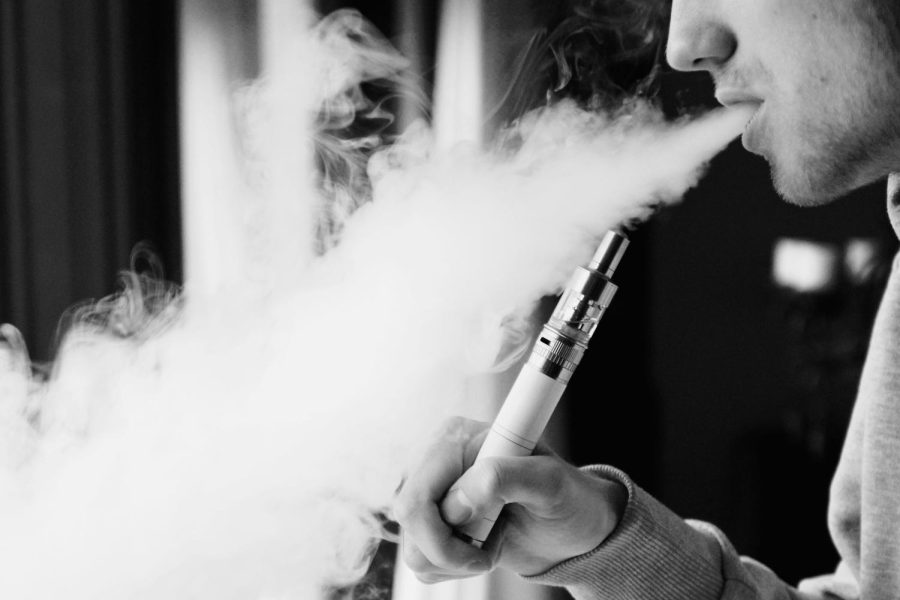According to the U.S. Food and Drug Administration (The FDA), one in 10 middle and high school students, or 2.5 million students nationwide have been reported using e-cigarettes.
The question is though, is vaping really that popular? And if it is so popular, why?
Jonah Ziv, 20, a Business Administration major from Bensalem said, “I’ve never vaped personally so I’m definitely biased, but I think it’s something people shouldn’t really do but if someone is fully aware of the consequences and decides they still want to, that’s on them.”
Now, this may be a popular opinion with some people, but the other side of the argument has a say as well. For those who do use vape devices, how did they start?
Kaylie Buechner, 21, from Bensalem said, “I started to do it a little sophomore year and now I’m 21 and I can’t put it down or go anywhere without it and I hate it. It’s hard to stop because everyone does it, more of my friends than not, vape.”
She continued by mentioning how, even in the face of extreme negative consequences, many people are finding it near impossible to break the habit.
“Like, I see Tik-Toks of kids that don’t stop till it puts them in the hospital, or they develop asthma from it. I even have a friend that had to have her tonsils removed because of vaping and she didn’t stop. And that didn’t even make me want to stop,” expressed Buechner.
Therefore, her opinion on vaping is don’t even bother to start, don’t even try it just once. “Worst habit to pick up, maybe even worse than cigarettes,” Buechner concluded.
Kaylie’s story shows the true horrors of vaping. If it’s so addictive and so terrible, then why is it so popular? What makes vaping so appealing to young people?
According to the Windsor-Essex County Health Unit, the appeal of vaping is simply because it’s seen as “cool” in young people. It has fun flavors like fruit, candy, and desserts, and it’s seen as trendy or a status symbol for the younger generation.
It’s also commonly and popularly believed to be safer than smoking cigarettes.
Although according to the American Heart Association, e-cigarettes can deliver large amounts of nicotine into a person’s body.
Sometimes even more than normal cigarettes. They also include harmful substances like diacetyl (a chemical linked to lung disease), cancer causing chemicals, and heavy metals like lead, tin, and nickel.
The CDC actually encourages that people don’t use e-cigarettes.
Since the Coronavirus pandemic started, Michael Blaha, M.D M.P.H director of clinical research at the John Hopkins Center for Prevention of Heart Disease have found, E-cigarette use for high school students have increased 1,000 percent, and increased with middle school students 400 percent.
It seems that no matter what side you’re on, whether you vape or not, the most popular opinion is that you shouldn’t vape. The FDA and CDC both show how important it is to stay informed about what you’re putting in your body and to know what effects the things you do may have.
Vaping isn’t going away any time soon, but more research, testing, and regulation certainly can’t hurt.


